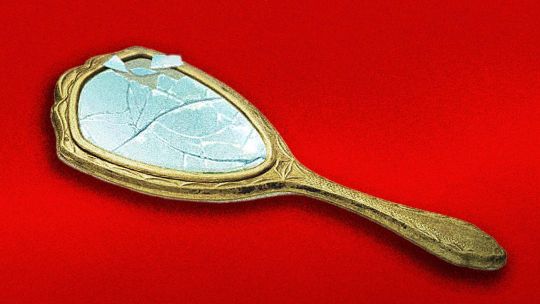
These are bad days for political movements that are based on ideas rather than on charismatic personalities able to persuade large numbers of people that they can make their lives better or, at least, more meaningful. Though to widespread bemusement elsewhere socialism has recently become popular among well-heeled New Yorkers who feel the world owes them a living, in Europe – where it first arose and for many years thrived mightily – it is quickly fading from sight. As for old-fashioned conservatism, it is turning into a niche pursuit for people who feel nostalgic for what they imagine once was.
Once upon a time, politicians were expected to stand for rather more than their own egos, but in most parts of the world, the more successful political parties now tend to be one-man bands that depend almost entirely on the personal quirks of the leader who, naturally enough, enjoys being buttered up by underlings determined to take advantage of his or her vanity for their own devious purposes. Some such leaders, among them Javier Milei, run the risk of becoming caricatures of themselves.
Another is Donald Trump. He may not have invented the Republican Party, but he has remade it in his own image and behaves as though he owns it. He gets away with this because card-carrying legislators know that for now at least their fate depends on their loyalty to the boss. In the United Kingdom, Nigel Farage – another individual gifted with the ability to make working folk think that at heart he is one of them – has become the most popular politician in the land and the Reform UK party he set up threatens to outpoll the Labour and Conservative parties that for many decades dominated the political landscape but have now fallen into disrepute.
For Argentines, what is going on abroad looks all too familiar. Here, political movements have long been largely personal undertakings, which is why so many are named after a single individual who is credited with creating his or her own “-ism,” hence Peronism, Kirchnerism, Macrism and a great many others. Even quite lowly politicians can be honoured in this way. Had socialism, communism or conservatism been associated with a crowd-pleasing leader, they might have made headway as they did in other countries where ideas still mattered as much as a politician’s image, but they failed to produce any and as a result they have only played bit parts in Argentina’s convoluted political melodramas.
The way things are going in the richer parts of the world, similar melodramas are likely to occur in countries whose political elites once took pride in their ability to prevent members of their fraternity from acquiring grandiose delusions. Unfortunately, movements that begin life as the personal vehicles of ambitious individuals are prone to remain trapped in the past. As the Peronists – who have been around for three-quarters of a century – eventually discovered, coming up with a successor to the revered founder can be extremely difficult.
Trump will soon be 80, so his admirers are asking themselves what will happen to the movement he spawned when he is no longer in a position to control it. Some North Americans, channelling their inner Argentine, think it should remain in the family with one of his sons inheriting the business, others would prefer to let J.D. Vance assume command, but unless they are very lucky, without the Orange Man to hold it together, the highly-successful MAGA movement could be torn apart by infighting.
Milei is a product of what until not that long ago was assumed to be a bad Argentine tradition but which, a few years ago, spread to parts of developed world where more and more people managed to convince themselves that a single person could provide them with the political and economic answers they craved. Though Milei insists that what he represents has deep roots going back to late 19th-century Austria or even Biblical times, there can be little doubt that his remarkable rise, like that of Trump, owed as much to his singularly aggressive public personality as to the ideas he espoused, variants of which, after all, have long been held by “orthodox” economists who failed to attract more than a handful of voters.
Milei’s trademark ranting against the local status quo and against those he thinks in some way uphold it continues to go down well with much of the electorate, which is why it is generally assumed that the La Libertad Avanza party his supporters improvised when it became clear that he could reach the presidency will make big gains in the upcoming elections. Whether or not it will manage to become a long-lasting majority, as the Peronists’ Partido Justicialita almost did, is another matter. The ferocious abrasiveness that characterises Milei may help him keep the backing of millions of people who are just as angry as he is, but after he departs from the scene it will not be of much use to those who eventually replace him, his sister and those who now take orders from them.
This is the one reason why Karina Milei and her associates are determined to put distance between their party and Mauricio Macri’s PRO, which, unlike La Libertad Avanza, depends less on obsequious loyalty to the leader than on its adherence to a set of ideas which have quite a lot in common with those of the current government, but which are accompanied by a preference for democratic procedures and a willingness to treat ideological foes with a modicum of respect.
This should allow PRO to survive Karina’s attempt to incorporate it into her brother’s makeshift outfit and – after attaching itself to the libertarian juggernaut in the belief that by doing so it will help keep Kirchnerism at bay – disentangle itself in order to play a major part in a country that, its members must fervently hope, thanks to Milei will soon have turned its back on the free-spending and fiscally irresponsible movements that brought it to where it is today and would be prepared to welcome a party that, in their view, shares the virtues of La Libertad Avanza but is free from its unendearing vices.
related news





